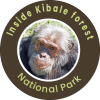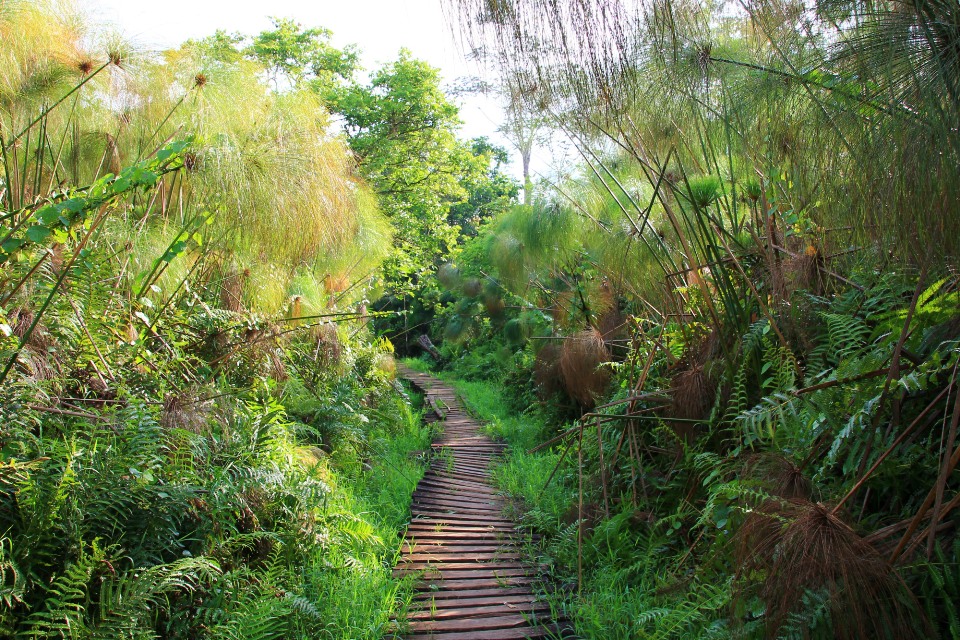
Bigodi Sanctuary Wetland is a community based conservation wetland that was formed back in 1992. The sanctuary is located in Magombe swamp, 6km away from Kanyanchu Tourist Center in Kibale Forest National Park.
The sanctuary was formed with Kibale Association for Rural and Environmental Development (KAFRED), a community based organization that started in 1992 to conserve biodiversity beyond Uganda’s nationally protected areas, while benefiting communities through sustainable tourism-focused businesses. Just one third of a kilometer wide, KAFRED’s Bigodi Wetland is a treasure-trove of Ugandan birds, primates, and other wildlife.
Bigodi Wetland Origin
Its name “Bigodi” was derived from a local Rutooro word, “kugodya”, that means ‘to walk tiredly or wearily’. It is supposed that when visitors reached the Bigodi swamp on foot, they were at all times too tired to go on and visit the jungle; and for this reason they decided to rest there.
Many visitors come to this area of Kibale forest for chimpanzee trekking and other primates and yet there is much more to do and see especially in Bigodi Wetlands Sanctuary. The verdant vegetation of Bigodi Wetlands is simple a sight in itself; with wild palms, polita fig trees and the ever dominant papyrus among the many other plants, flowers and trees.
Bigodi Wetland Community
Currently, the community based conservation group is managed by John Tinka, a former ranger guide at Kibale National Park, and a group of women do run the entire management.
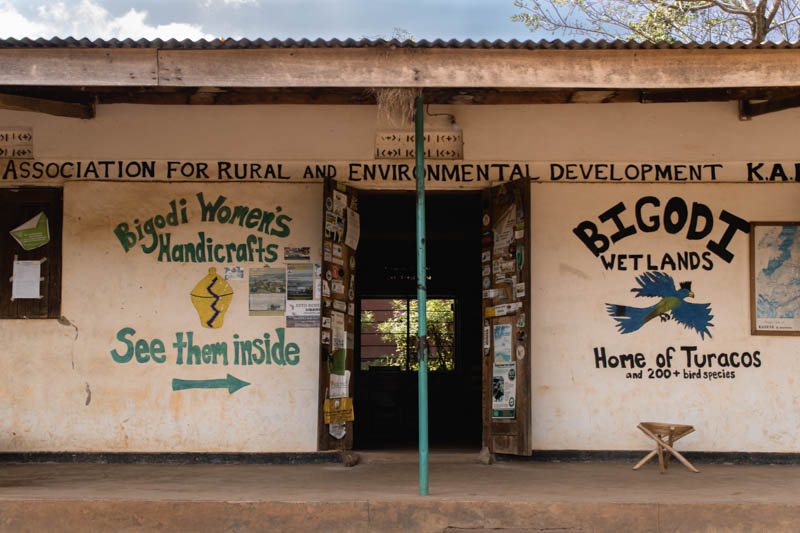
The women in here have created the Bigodi Women Group that consists of more than 40 members, who make good-looking beads using recycled paper plus additional materials got from this swamp, such as, rafia plus phoenix and palm leaves used in weaving baskets and making bags respectively. A number of their local products are also exported to as far as Europe.
Bigodi wetland provides a perfect encounter with local communities that dwell in this area, comprising of Batooro and Bakiga. This presents a great and true experience through meeting and interacting with the neighboring communities. This exposes visitors to a true image of the welcoming members, patient and creative communities and their projects like Bigodi secondary school, water project, health centre, church, Bigodi women group project, arts and craft, and very beautiful souvenirs, including African made beads, mats, baskets mainly to improve the standards of living of the natives around Bigodi wetland sanctuary.
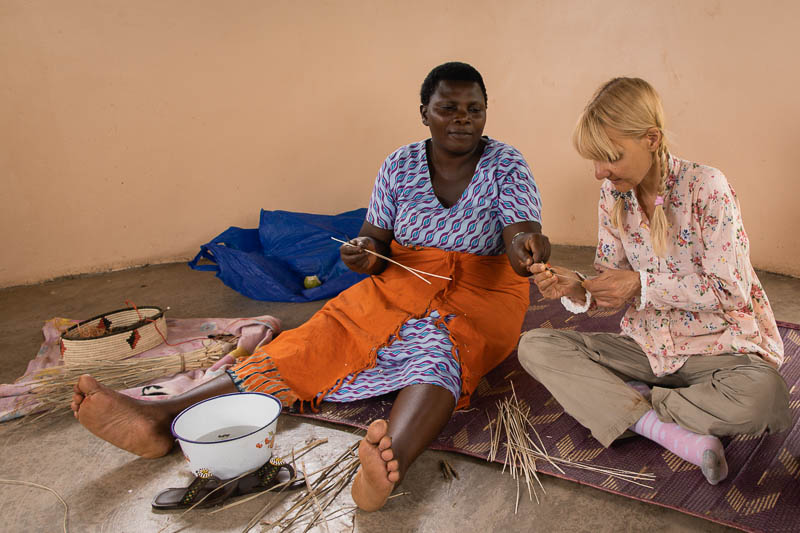
This area is recognized for a extensive array of biodiversity among which are several primate species like the red colobus monkey, olive baboons, black & white colobus monkey, blue monkey grey cheeked, mangabey, vervet monkey, red tailed monkey and the L’Hoest monkey. Additional mammals such as chimpanzees, sitatunga, mongooses, bush pigs, otters and bush bucks, also visit this swamp coming from the adjacent Kibale National Park.
Birding in Bigodi Wetland Sanctuary
Bigodi is a paradise for birders and tourists that are seeking to do bird watching around Kibale Forest National Park. Skilled birders can spot more than fifty new species on their bird list in this area. Today, more than 138 bird species have been recognized within the Bigodi Wetland Sanctuary.
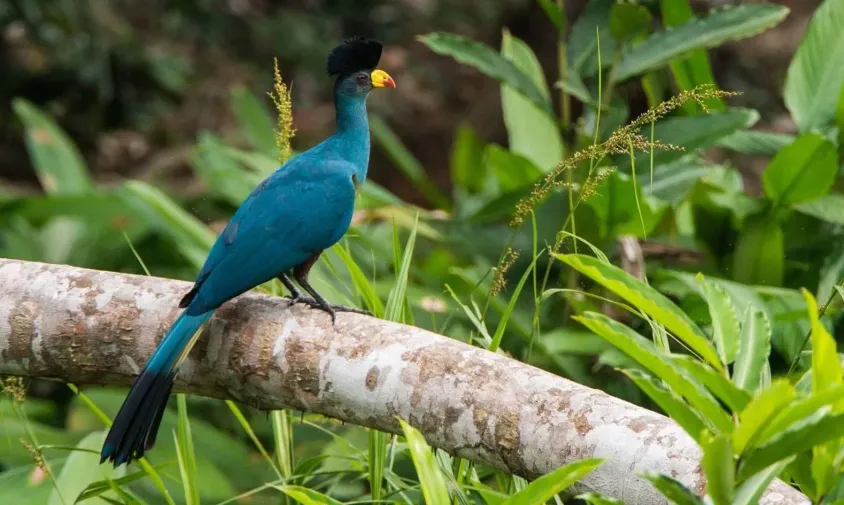
Such bird species include the grand Blue Turaco, white-spotted flufftail, yellow-spotted barbet, hairy-breasted barbet, yellow-billed barbet, western nicator, grey-winged robin-chat, white-tailed ant-thrush, brown-backed scrub-robin, black-and-white shrike-flycatcher, brown-throated wattle-eye, superb sunbird, brown-crowned tchagra, bocage’s bush-shrike, black bishop, white-breasted negrofinch and black-crowned waxbill among others.
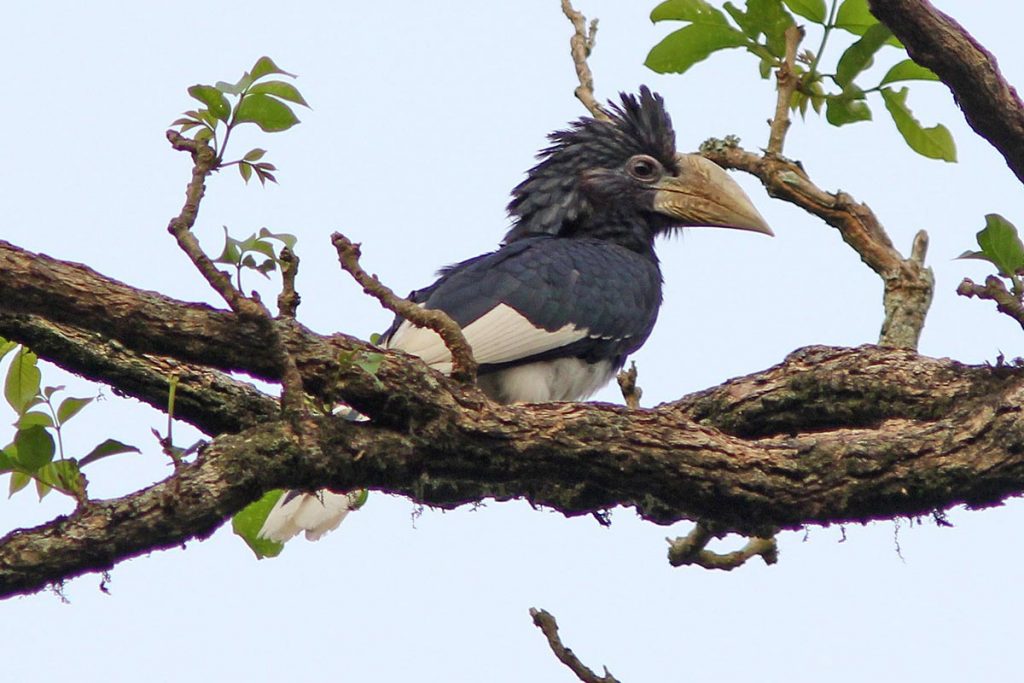
Bigodi Wetland Sanctuary is a must visit place on your tour safari to Kibale National Park, as a result, you can as well do butterfly watch as you move along the trails. After Bigodi Wetland walk, tourists can proceed to Queen Elizabeth National Park for a wildlife safari to see the giant African elephants, buffaloes and tree climbing lion among others. Others also visit Bwindi Forests National Park for a gorilla trek safari, to meet the gentle giant mountain gorillas.
